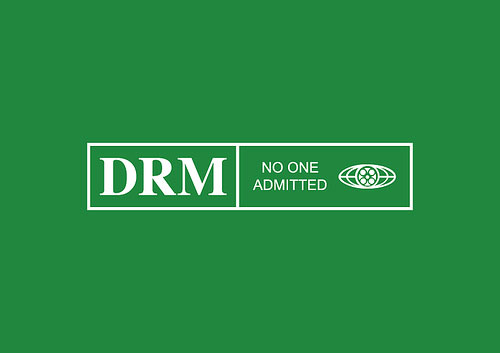For some time, Marvel Comics and Disney Interactive have been making a number of moves, both subtle and overt, that suggest the media titan is attempting to secure the tactical high-ground in the war for the future of the comics digital marketplace. Today we’re going to break down the tactics which the company is employing in this endeavor.
Strength: Marvel Unlimited/Unlimited Plus
 In August, we reported that Disney Interactive was awarded a patent for a technology which seems remarkavly similar to ComiXology’s Guided View platform, positioning themselves for a possible strike on the market-leading platform for digital comics distribution.
In August, we reported that Disney Interactive was awarded a patent for a technology which seems remarkavly similar to ComiXology’s Guided View platform, positioning themselves for a possible strike on the market-leading platform for digital comics distribution.
Then, last week, they announced an upgrade to their long-running Marvel Unlimited product, Marvel Unlimited PLUS. Where the original offering allowed users to access the complete Marvel library digitally with a six month delay, the upgrade (available for a premium) allows users immediate access to titles on the date of release.
Currently, Marvel is the only publisher to offer a subscription service of this kind. The price point may seem prohibitive for some at one hundred dollars per year, but when compared to the cost one would pay for a similar collection of over forty-thousand issues on a platform like ComiXology (minimum $40K), it appears much more reasonable. One hundred dollars is the sort of price where a doting grandparent might give their fan-child a year’s access to every single Marvel title ever published rather than try to find that one collection said child doesn’t already have.
Either way, Marvel possesses a clear advantage in the digital back-issue arena.
Strength: Digital Codes
 Another area where Marvel has shown a willingness to break with market trends is the digital editions of their new releases. DC Comics offers combo packs which contain a digital code for an additional $1, and nearly every publisher on the planet has moved to day-and-date simultaneous release of their books on ComiXology, but Marvel is the only company to offer digital codes in their print releases at no additional cost to the reader. This allows collectors to pay a single price rather than pay once for the hard copy, which they’ll bag, board, and never touch again, and again for the digital copy they obtain for repeat reading purposes. It also promotes the sharing economy, where fans who don’t necessarily care about collecting digital comics have taken to giving those codes away for free on social media.
Another area where Marvel has shown a willingness to break with market trends is the digital editions of their new releases. DC Comics offers combo packs which contain a digital code for an additional $1, and nearly every publisher on the planet has moved to day-and-date simultaneous release of their books on ComiXology, but Marvel is the only company to offer digital codes in their print releases at no additional cost to the reader. This allows collectors to pay a single price rather than pay once for the hard copy, which they’ll bag, board, and never touch again, and again for the digital copy they obtain for repeat reading purposes. It also promotes the sharing economy, where fans who don’t necessarily care about collecting digital comics have taken to giving those codes away for free on social media.
If Marvel continues this approach, it is likely that more publishers will follow. Even if this doesn’t happen, there is currently more incentive to purchase a print edition from Marvel than there is any other publisher, giving them a clear advantage on this field as well.
Weakness: Digital-First Comics
 One area where Marvel has NOT excelled in comparison to their competition is in digital-first releases. While they have made some tacit attempts to enter this space with offering like their Infinite comics line, DC has developed a growing slate of titles which are first released in digital format including Batman Beyond, Justice League Beyond, and Smallville Season 11. This approach has allowed them to create flexible publishing schedules and derive multiple revenue streams from one product when these bi-monthly digital releases are collected every month or so into a print edition, while also providing a platform where they can allow writers and artists to experiment without the risk of ruining an entire print run.
One area where Marvel has NOT excelled in comparison to their competition is in digital-first releases. While they have made some tacit attempts to enter this space with offering like their Infinite comics line, DC has developed a growing slate of titles which are first released in digital format including Batman Beyond, Justice League Beyond, and Smallville Season 11. This approach has allowed them to create flexible publishing schedules and derive multiple revenue streams from one product when these bi-monthly digital releases are collected every month or so into a print edition, while also providing a platform where they can allow writers and artists to experiment without the risk of ruining an entire print run.
This is one area in which Marvel could stand to improve if they want to truly dominate the digital space.
Weakness: Continued Reliance on DRM
 The other area in which Marvel could stand to improve is their continued use of Digital Rights Management (DRM) to protect their content. Earlier this year, Image Comics followed smaller indie Thrillbent in going completely DRM-free for all files purchased through their own website. This does increase the risk of piracy, but also allows readers to feel at ease in actually owning the content they’ve purchased, rather than relying on platforms like ComiXology which, should it ever go under, would take access to all 150 million comics sold since its inception with it.
The other area in which Marvel could stand to improve is their continued use of Digital Rights Management (DRM) to protect their content. Earlier this year, Image Comics followed smaller indie Thrillbent in going completely DRM-free for all files purchased through their own website. This does increase the risk of piracy, but also allows readers to feel at ease in actually owning the content they’ve purchased, rather than relying on platforms like ComiXology which, should it ever go under, would take access to all 150 million comics sold since its inception with it.
In the final analysis, Marvel is losing content battle, but overall is winning the digital war. Whether this remains true is something we’ll be keeping an eye on, but for the time being, Disney’s House of Ideas is the reigning champ of the digital comics marketplace.
—–
Josh Epstein is the Publisher for the Capeless Crusader website. He also hosts the weekly Infinite Crossover podcast in cooperation with Fanboys Inc. He’s a lifelong comic nerd, and “Superman” is the first word he ever read aloud. He is also an actor, singer, and daytime supporter of all things technical. contact: joshuadepstein@gmail.com
—–
Filed under: COLUMNS, COMMENTARY

















